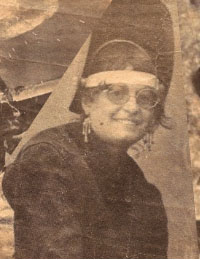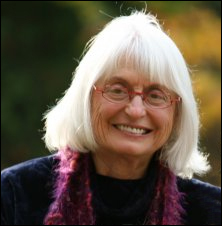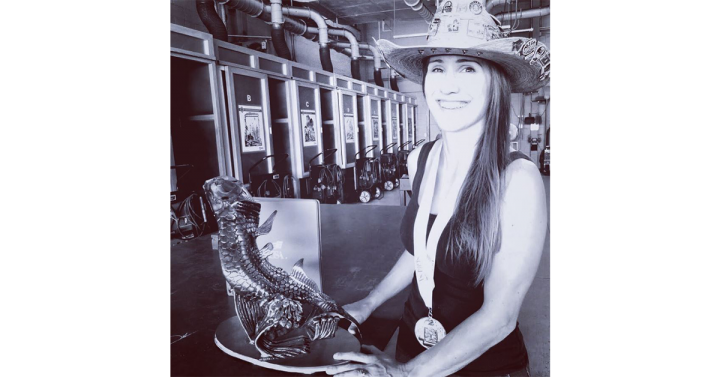 Compelled to learn welding, 60s era single mother Hadiyah Carlyle entered the welding workforce at Hunter’s Point Shipyard as one of the first women since World War II to enter the trades.
Compelled to learn welding, 60s era single mother Hadiyah Carlyle entered the welding workforce at Hunter’s Point Shipyard as one of the first women since World War II to enter the trades.
What began as a passion to weld, not only became a way to self-reliance and economic survival, but path to healing her childhood trauma.
Hadiyah documented her journey in her newly released memoir, Torch in the Dark.
I wish I could say I got to sit down with Hadiyah. What an amazing woman to have entered an arena that was downright hostile to women, that she even knew that welding was a career option, that she did it in spite of societal norms during a turbulent time for women… but alas, she lives in the Seattle area, so I conducted my interview over the internet.
In the book you write about your neighbor who first introduced to the IDEA of welding, of joining metal in 1966. You took your first class in welding after work at Hunter’s Point—what was that like? I assume you were the only woman… walking into that classroom… how is it that you were not afraid?

You have to remember that it was the ’60s in San Francisco. I, and almost everyone else I knew, were already working in non-traditional jobs. Before I started working at the Hunter’s Point shipyard, I was working for the Post Office, which was really blue-collar work, very different from the professional role I had as a social worker right after I graduated from college. At the shipyard, I was the only woman working there, but by that time I was used to the blue-collar environment. Also, when I started working at the shipyard, there was something about it that felt very familiar. I felt like I was drawn to be there. I know now that I associated it on an unconscious level with the basement of my father’s grocery store, where I played when I was a small child.
I can’t imagine having to put up with what you did working at the shipyard…And while I’m not so naïve as to think these kinds of things (nasty comments, harassment, blatant sexism) don’t still happen, I think for the most part it’s not tolerated, and/or there is recourse. Am I right in this assumption? What do you think young women today take for granted?
Since I’m not working in that environment today, it’s hard for me to say what it’s like now, but I suspect that, while the harassment may not be as blatant, it still happens on a more covert level. At least young women today probably know that they have recourse, and they may not be aware of what it took to make that recourse possible.
I have to admit that it made me sad that you were for all intents and purposes forced out of your job, that you had to give up something you clearly loved doing—it seems that welding gave you sense of power—can you talk about that a bit more?
The sense of power I got from welding, from putting pieces of metal together, had a lot to do with the healing I was going through at the time. By the time I left the shipyard, I had achieved what I wanted to achieve through welding and working in that environment. I didn’t need to continue doing it. There were other things I wanted to do with my life. And the work was very hard on me physically because I didn’t grow up doing that kind of work. When I left the shipyard, I was ready to leave, but I did continue welding in a different environment. My work after that involved teaching welding to both women and men at Bellingham Technical School, and that was very different.
When is the last time you welded? Have you missed welding?
EDITOR’s NOTE: in the 80s Hadiyah earned her Master’s degree in Social Work at Rutgers University.
I actually had an opportunity to weld a few years ago. It wasn’t the same. I had forgotten a lot of what I knew. I haven’t been around the equipment for years. I can imagine that, if I had access to the equipment, I might enjoy working with it, but I don’t particularly miss it.
You mentioned in an earlier email that you ran a program called Women in the Trades. What changes have you seen in the trades over the years in terms of opportunities for women and recourse for when things don’t go well.
I was Executive Director of an organization in Bellingham, Washington working to get more women employed in the trades. I held that position for about four year. We went out to companies in the area and urged them to recruit and hire women. We screened the women that they hired. We established programs for training women. I left Bellingham in 1980 to go back to the East Coast and earn my MSW, so I have no direct knowledge of changes for women in the trades since that time. I believe that others have been carrying on the work to improve conditions for women, but I know that it requires constant vigilance.
Given the environment (cultural, socio-political) do you think that welding (or other trades) are good career choices for women?
 I think it depends on the individual woman and her background. For women who have grown up working with their hands and being physically active, it can be very fulfilling work and provide a good income. Personally, I didn’t have that kind of background, so it was particularly challenging for me. I could not have spent a lifetime doing it. I think that everyone who works in the trades, men as well as women, should be aware of the physical demands of the work and make sure that they take appropriate care of themselves.
I think it depends on the individual woman and her background. For women who have grown up working with their hands and being physically active, it can be very fulfilling work and provide a good income. Personally, I didn’t have that kind of background, so it was particularly challenging for me. I could not have spent a lifetime doing it. I think that everyone who works in the trades, men as well as women, should be aware of the physical demands of the work and make sure that they take appropriate care of themselves.

